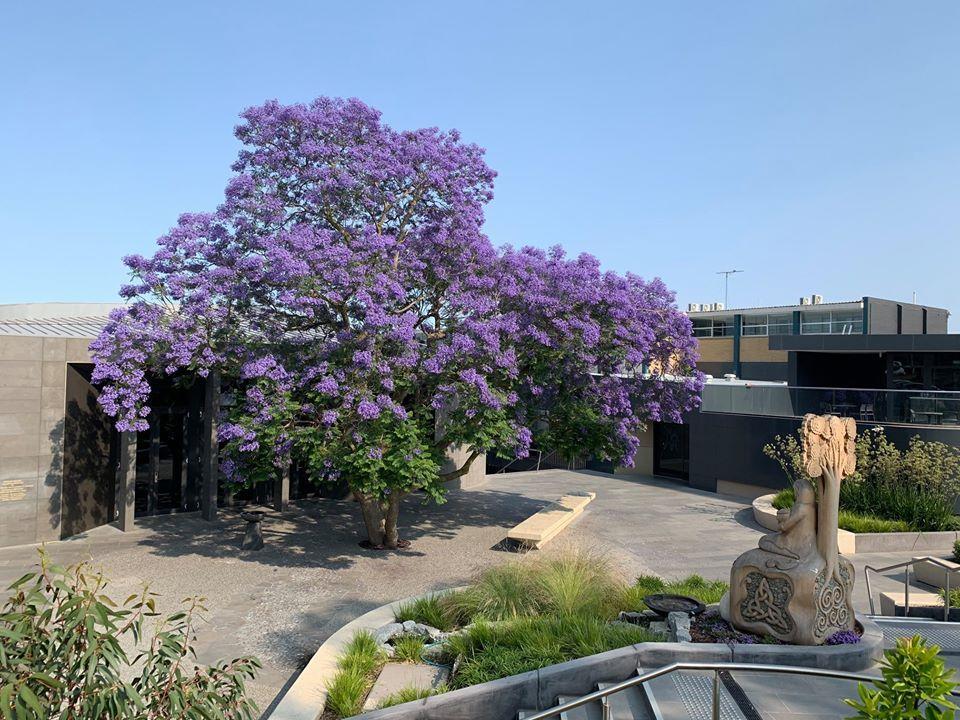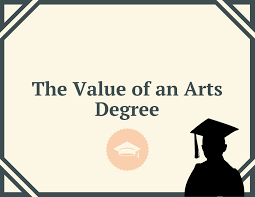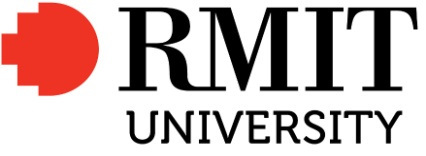
Newsletter
Canteen News
11 November 2021
ACCent on MUSIC
ACC Music Spectacular
Hamer Hall
Arts Centre, Melbourne
7-9pm, September 13th, 2022
Following our most successful combined school concert in 2018, the Associated Catholic Colleges is proud to announce that we will return to Hamer Hall in September this year for our fourth music spectacular, “ACCent on Music”.
This music spectacular will feature the individual and collective musical talents of the thirteen ACC member schools, showcasing a range of ensembles across all year levels. The aim of this concert is to provide an opportunity to showcase the variety and excellence of music programs within the ACC to our school communities and to the general public. It also provides our musicians and singers a potentially once-in-a-lifetime opportunity of performing high calibre works in a world-class concert hall.
A wide variety of musicians and vocalists will be involved in this performance in a number of ways; Choir, Concert Bands, Stage Bands, Guitar Ensemble, Rock Band, String Ensemble and Symphony Orchestra. The Directors of Music from our member colleges have been working incredibly hard in preparation for the concert, and will be working collaboratively to ensure that the concert is a great success.
We ask the support of all students and families in attending the concert, which is to be held at Hamer Hall, Arts Centre Melbourne on Tuesday, 13th September 2022. Ticket prices have been set at $25 per ticket.
Tickets are available to purchase via the ACC website: www.accmelb.com.au/tickets
Click on the link with your school logo which will take you to the relevant online ticket box office site for Arts Centre Melbourne. Tickets are available for all seats in the Stalls and Circle. Secure yours before they are sold out!
This event promises to be a memorable experience for performers and audience members alike. For further details, please contact the Director of Music at your school, or visit the ACC website: www.accmelb.com.au and browse details of the event under “Music”.
To view a short 12-minute showcase of our most recent ACCent on Music Concert, visit: https://www.accmelb.com.au/previous-concerts/
Luka Coveny (Year 11) has been selected for the Australian u17 Soccer Team that will compete in a tournament from
28th July - 14th Aug . This is a fantastic achievement and showcases Luka's commitment to his craft, Well Done Luka

Giuseppe Sfregola (Year 9) recently competed at the Judo Victoria July 2022 Competition, and was awarded a Silver medal in the Senior Boys age group - Well done Giuseppe, Another great showcasing of the talent at the College

Last week St Bernard’s held their Subject Selection Expo for Year 10s moving into VCE. This evening was an opportunity for all students and families to connect with VCE staff to support them in the process of subject selection.
From Monday August 1, the web preferences portal to select subjects will be open for all Year 10-12 (2023) students. It is important for students across the senior years to be aware of these dates
Friday August 5
Application for accelerated studies (Unit 1-2 or Unit 3-4) close
Application for the SBC Baccalaureate close.
Application for AGERE-Applied learning (Year 10 2023) close
Friday August 12
Subject selection closes
📅 Date: Wednesday, June 12 ⏰ Time: 7:00 PM 📍 Location: MS Teams
Dear Parents,
We are pleased to announce that the GAT (General Achievement Test) Parent Information Night is scheduled for next Wednesday, June 12, at 7:00 PM via MS Teams. This session is essential for all Year 12 students and any accelerated Year 11 students.
Important Points:
The link to the event was included in a letter sent home this week.
If you missed the link or need additional information, please reach out to your son’s year level leader via email.
As of May 2020, the Uniform Shop will be operating by appointment only. This will help alleviate lengthy queues during peak periods.
With the phasing in of the new Sun-smart bucket hats next term, we will be selling the remaining stock of SBC baseball caps for $8 each. Please note that the caps will not be available to purchase from October onwards but students will still be permitted to wear them.
Click here to make an appointment
If you know the sizes of the items you require, visit https://shop.sbc.vic.edu.au/ to order online.
For all other uniform enquiries, or to volunteer in the uniform shop, please email rbuhagiar@sbc.vic.edu.au or phone 9289 1176.
Due to increased costs to the canteen some items will need to go up in price.
These new prices will come into affect from Monday, August 15th.


OPEN DAYS
ACU: Sunday 7 August
Deakin University: Geelong campus Sunday 7 August, Burwood campus Sunday 28 August
La Trobe University: Sunday 7 August
Monash University: Clayton and Caulfield campuses Sunday 7 August, Parkville campus Sunday 21 August (pharmacy)
RMIT: City and Brunswick campuses Sunday 14 August, Bundoora campus Sunday 7 August
Swinburne University: Sunday 31 July
University of Melbourne: Sunday 21 August
VU: Saturday 21 August

Where can an Arts Degree take you?
There is often the debate about the value of an Arts Degree and what kind of role an Arts graduate could find in industry. The list of roles is quite varied, and includes -
Teaching & educational administration
International aid and trade agencies
Arts production and management
Public service and social welfare agencies
General management and administration (local and global)
Communications industry, publishing, media, and public relations
Tourism and hospitality
One of the very important things for students to note, is that an Arts student learns skills that are very transferrable in industry. These include communication skills, critical thinking and reading skills, analytical skills, and research skills – browse Career FAQS - What to do with your Arts Degree to learn more. Monash University recently shared an excellent YouTube video about a Career with a Bachelor of Arts.

Studying the Bachelor of Applied Innovation alongside another Degree
Swinburne University is introducing the Bachelor of Applied Innovation to be studied in conjunction with a number of other degrees. With just one extra year, students get to graduate with a double degree.
Depending on the degree a student chooses to study alongside the Bachelor of Applied Innovation, various skills will be developed, including –
a student’s collaboration, creativity, and complex problem-solving skills in real-world contexts.
how to apply innovation toolkits, prototype solutions and participate in challenges such as innovation sprints inspired by their passions and interests.
gaining the practical and technical skills to think strategically about how to employ innovative ideas in their studies and in the broader society.
learning how to make decisions of impact, based on analytical and strategic thinking, human understanding, and respect for future generations – with supporting technological know-how.
undertaking placements, internships or industry-based project work, and benefit from interdisciplinary, experiential learning. Students will tap into their creativity, curiosity, and leadership potential as they gain the skills to build a better future.
The following double degrees including Applied Innovation are on offer. Students are encouraged to browse the links that provide more details about the core and major units on offer in the Applied Innovation degree as they do differ from double degree to double degree:
Bachelor of Business Information Systems/Bachelor of Applied Innovation
Bachelor of Criminal Justice and Criminology/Bachelor of Applied Innovation
Bachelor of Engineering (Honours)/Bachelor of Applied Innovation
Bachelor of Games and Interactivity/Bachelor of Applied Innovation
Bachelor of Information and Communication Technology/Bachelor of Applied Innovation
Bachelor of Media and Communication/Bachelor of Applied Innovation
Bachelor of Screen Production/Bachelor of Applied Innovation

Physiotherapist, Chiropractor, Osteopath and Myotherapist
What is the difference? In November 2020 an article by Charlotte Ganderton and Matthew King was published on the ABC website addressing this very topic, and the fact that all four types of therapy come highly recommended to assist people in managing their aches and pains. To sum up the article –
In Australia, physiotherapists, osteopaths, and chiropractors have extensive university training and are registered with the Australian Health Practitioner Regulation Agency (AHPRA). Myotherapists complete an advanced diploma or bachelor’s degree in myotherapy or "musculoskeletal therapy” but are not registered with AHPRA.
The article goes on to state that a physiotherapist assesses your problem, provides a diagnosis, and helps you understand what's wrong while considering your general health, activities, and lifestyle. The physiotherapist treats your complaint with a variety of "active" therapies, such as exercise programs and hydrotherapy.
A chiropractor works on the diagnosis, treatment and prevention of mechanical disorders of the muscles, ligaments, tendons, bones and joints, and the effect on the nervous system.
They have an emphasis on passive manual treatments, including joint and soft-tissue manipulation, and spinal adjustments. They may also prescribe exercises to help you rehabilitate from your condition as well as provide dietary advice.
An osteopath focuses on the muscular and nervous systems, assessing the structure of the body to determine its impact on function. Treatment involves a combination of active and passive therapies, including joint manipulation and mobilisation, massage, as well as postural advice and exercise programs.
Finally, a myotherapist works to assist your aches and pains by focusing on the muscles and joints. They offer a range of mostly "hands-on" treatments including dry needling, massage, and joint mobilisation, but can also prescribe exercises.
Students can access the full article at Physiotherapist, chiropractor, osteopath and myotherapist: what's the difference and which one should I visit?

What does a Clinical Neuropsychologist do?
A clinical neuropsychologist specialises in the assessing and diagnosing of brain impairment and how this affects thinking skills, emotions, behaviour and personality. These specialists are also involved in the rehabilitation and management of the effects of brain impairment and often work with other health professionals.
To find out more about a career as a Clinical Neuropsychologist, visit Clinical Neuropsychologist.

Career in Veterinary Nursing
The Good Careers Guide * states that Veterinary Nurses provide support to veterinarians in the management and care of animals receiving medical and surgical treatment.
The Personal requirements for a Veterinary Nurse include -
Enjoying working with animals
Able to handle animals with confidence and patience
Able to make accurate observations
Having good communication skills
Having good organisational skills
Being able to work as part of a team
Being caring and understanding
Some of the tasks a Veterinary Nurse might have to do include –
Providing animal care advice, and preparing, delivering, and reviewing animal care education programs.
Assisting Veterinarians to administer anaesthetics and oxygen during operations.
Holding animals to allow examination and treatment by Veterinarians.
May act as receptionist, accept payments, and undertake clerical work.
Giving medications to animals.
Placing animals in cages for recovery from operations and monitoring their condition.
Maintaining stock control and records.
May perform diagnostic laboratory tests.
Preparing instruments and handing them to the Veterinarian.
Cleaning and sterilising examination tables and equipment.
* The Goods Careers Guide – Veterinary Nursing
Veterinary Nurses need to have a minimum of a Certificate IV in Veterinary Nursing, although qualifications can include diplomas and bachelor degrees. Some of these can be found at Box Hill Institute, Melbourne Polytechnic, and La Trobe University.

Accounting and Business Information Technology (Professional)
The Bachelor of Accounting and Business Information Technology (Professional) is a prestigious industry degree highly integrated with the real world to maximise your employment outcomes.
In this practical and hands-on course, students will:
Explore how people, information, computers, networks, and processes come together to create cohesive business solutions.
Learn how to use accounting systems to record and analyse business activities, prepare financial statements and management reports, and employ financial statements to guide investment decisions.
Understand how to use information from financial accounting systems to develop operating strategies and evaluate business performance.
Gain skills in designing, building, and implementing software solutions, analysing existing systems, and recommending solutions to address the information needs of organisations.
Leading Australian organisations are involved in the design of this course and in the professional development students. Industry partners include Deloitte, EY, NAB, PwC, Pitcher Partners, Siemens, Unico, and Viva Energy.
In the final year, there is a Business Information Systems Industry Project whereby students team up with other students to work on a real project briefed to them by an industry partner.
Find out more at Bachelor of Accounting and Business Information Technology (Professional).

Freight, Transport, and Logistics Industry
An industry that is continuing to grow is in transport and logistics. There are many careers in this diverse industry from actually driving a truck or train, to being part of the logistics team involved in the planning and distribution of freight and people. A particularly important part of this industry is in international freight – be it freight coming into Australia (imports) from all over the world, or cargo being sent from Australia (exports). People involved in this do not move the freight themselves, but instead act as an agent, connecting exporters, importers, and various transportation services like shipping, air freight, road transport, and rail.
An interesting website to visit is Make Your Move and students can also access videos of current students training in this industry.
There are two universities in Melbourne that offer dedicated logistic courses – RMIT and Victoria University. Students are encouraged to browse the following links providing more information about these courses:
Designed to help to develop a students’ knowledge and interest in contemporary issues central to the logistics and supply chain management industry. This unique degree prepares students for this essential industry, providing them with sought-after knowledge, and both hard and soft skills to allow them to thrive in a challenging and rewarding career. Throughout their studies, students will focus on developing end-to-end supply chain knowledge to deal with day-to-day and strategic supply chain issues.
Diploma of Logistics at RMIT
Designed to give students an understanding of key business areas while they develop specialist knowledge in transport and logistics planning, blockchain in supply chain management, and operations and risk management. This combination of skills, plus opportunities to engage in practical projects and collaborate globally with students and clients, will prepare students to move straight into the workforce after graduation, or to continue on into the bachelor degree.
Bachelor of Business (Supply Chain and Logistics Management) at Victoria University
Students enrol into the Bachelor of Business and study the Supply Chain and Logistics Management major. This major will enable students to pursue a business career in logistics and supply chain management, export/import operations. This major will also give students the skills to work closely with other companies in areas like manufacturing and services.
Logistics units/subjects are often offered in business degrees at universities.
Students are encouraged to browse VTAC for a comprehensive list of what is on offer across tertiary institutions in Victoria.
![]()
News from Victoria University
New Bachelor of Data Science
The Bachelor of Data Science has been designed for students with an interest in statistics, data analysis, machine learning and software development. The course has an industry-focused curriculum with a focus in practical expertise.
With market information and technology evolving at great speed, skilled professionals are needed to transform data into actionable insights for business. The Bachelor of Data Science is designed to meet this demand and give students the tools to analyse trends for business success, and launch a career perfectly aligned to industry needs.
Students will gain targeted expertise in:
mathematics and statistics
exploratory data analysis
machine learning
regression
classification
clustering techniques
text analytics
image and speech processing.
The VCE entry requirements are the completion of the VCE or equivalent, Units 3 and 4: a study score of at least 25 in English (EAL) or 20 in any other English, plus a study score of at least 20 in Mathematics (any).
Find out more about this course at Bachelor of Data Science.

Studying Design Courses at RMIT
Whether you’re passionate about graphic or interior design, merchandising or animation, study at the #1 design university in Asia Pacific.
RMIT offers a range of courses for students who are creative, curious, and keen on studying the creative arts.
Students are encouraged to browse this link to find out about all that is on offer.
Qantas Engineering are offering an apprenticeship program at their hangar facility based at Melbourne Airport. In early 2023, they’re looking to take 15 apprentices to support their aircraft maintenance operations with the recruitment process likely to start around September this year. For more information on the types of apprentices available, please click here: https://www.qantas.com/au/en/about-us/qantas-careers/programs/apprenticeship-program.html
Interested? Click on link above to confirm application details and then notify me immediately if you would like assistance with your application.

Difference between a Bachelor of Laws and the Juris Doctor
The Good Universities Guide provides a useful summary of the many types of law degrees that one can study for in Australia. Two such courses are:
Bachelor of Laws (LLB) -
The Bachelor of Laws is typically a 4-year degree and is open to school leavers with a high enough ATAR (or equivalent) score. This undergraduate degree fulfills the academic side of qualifying for admission into legal practice.
Juris Doctor (JD) -
The Juris Doctor is a postgraduate degree that typically takes 3 years. It is equivalent to enrolling in a LLB as a graduate. The main advantage of a JD over a LLB is that programs are designed to suit graduate students. Students should note though, that the JD normally costs far more than the LLB as, apart from generally higher tuition fees, postgraduate status means students miss out on government financial concessions for undergraduate study.
Students are encouraged to browse Top Law Schools and Degrees in Australia to learn more.
![]()
New Bachelor of Criminology and Criminal Justice degree
The Thomas More Law School has introduced the Bachelor of Criminology and Criminal Justice.
Already proving popular with students in 2022, this course explores the causes of antisocial behaviour and develops the knowledge and expertise needed to make a valuable contribution in the criminal justice sector. Students gain a deep understanding of the complex causes and impact of crime, and the legal and social policies that keep society safe. The degree includes studies in forensic psychology, forensic science, cybercrime, border protection and biosecurity and understanding violence and trauma. All criminology students also undertake a community engagement in the third year of the course.
Find out more at Bachelor of Criminology and Criminal Justice.